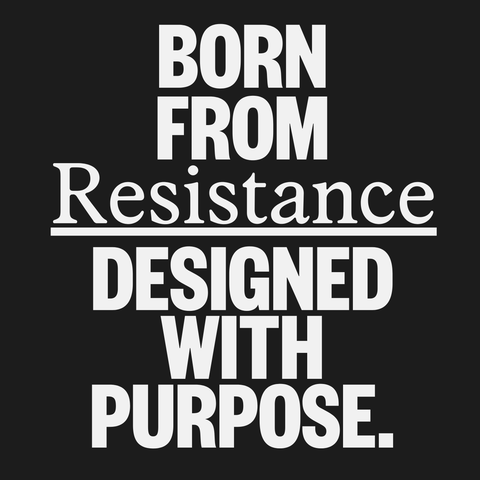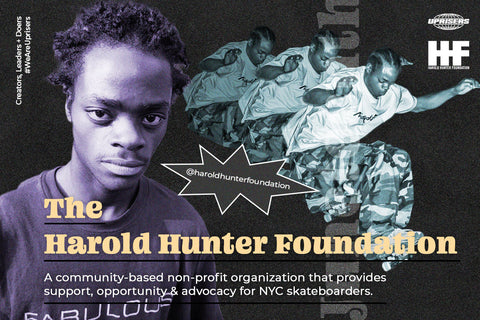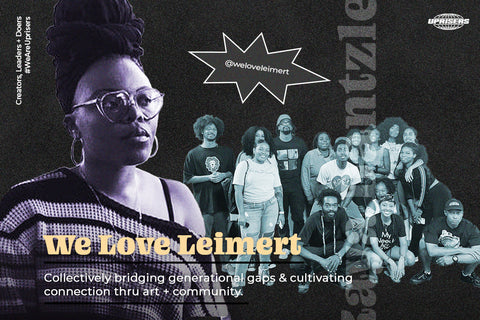Solidarity & Communion at the intersection of healing, protection, and renewal
The surge in anti-Asian hate crimes culminated in the 2021 Atlanta spa shooting, which served as the impetus for Solidarity & Communion, a hybrid in-person and virtual event intended to foster and celebrate Black-Asian solidarity. These deadly, racist attacks came less than a year after the strapping, resounding protests following the murder of George Floyd. Black Lives Matter demanded racial justice and an end to police brutality – a movement heard around the world, inspiring an entire generation.

[Clockwise from top left: Kyeyoung Park, Erin Wimberly, Kathleen Kim, Danielle Dorsey, Godfrey Plata, Sarah Ferguson, Ben Caldwell, Roy & Larry at “The Past, Present, & Future of Mutual Aid” Panel Discussion, photo credit Erin Wimberly]
Heeding the call for solidarity between Black and Asian communities, event organizers Erin Wimberly and Jeong (Lynn Stransky) are creating spaces for both communities to come together in conversation and camaraderie. Solidarity & Communion: A Weekend Fostering & Celebrating Black-Asian Solidarity centers three key themes: healing, protection, and renewal. Together, these two friends – who lovingly refer to each other as, sister – hope to counteract a white supremacist culture that pits people of color against each other and rewrite the cultural narrative that emphasizes racial antagonism between Black and Asian folks.
Drawing from the work of Edward T. Chang and Los Angeles’ Black-Korean Alliance, Erin and Jeong hope to remind Black and Asian people that showing up together has happened before, and it can happen again. They also hope to encourage their communities to learn from and correct their past mistakes. Historical roots of Asian-Black solidarity date back to 1955 with the Bandung Conference, which was the first large-scale Asian-African Conference where representatives of the Asian and African continents came together to promote decolonization. Within the history of Black and Asian American solidarity, there have been prominent duos who laid the blueprints for collective work. The influential and powerful activists include Grace Lee Boggs and James Boggs; Yuri Kochiyama, Bill Kockiyama and Malcolm X; and Rev. Jesse Jackson and Vincent Chin. In the face of adversity and racism, activist leaders understood that in order to achieve collective liberation of all marginalized groups, it meant working alongside one another in union. We can work in concert against racial injustice and build mutually supportive communities together.
“I feel there's a space for us to start having intergroup dialogue and talking circles, where Black and Asian folks share our personal and communal histories to confront and release any barriers that might be standing in the way of our coming together.”
- Erin
That is exactly what we witnessed at the Solidarity and Communion event. Each day featured performances, panelists and resources that were purposeful and intentional in deepening relationships and healing together.

[S.H.I.N.E Muwasi Women's African drum circle, photo credit Derek Garlington]
The weekend kicked off on Friday, May 21 with an evening of healing beginning with a land acknowledgement and offering to Tongva people, followed by meditation led by Noel Alumit and West African Drumming performed by S.H.I.N.E Muwasi, a Women’s African drum circle led by Rene Fisher-Mims.
Day two opened with the theme of protection featuring workshops on the internal martial art of Baguazhang, a theory and movement-based self-defense, led by Yunuen Rhi; Esgrima y Machete, an Afro-Columbian self-defense technique developed by enslaved Africans to free themselves from their captors, led by Sonny Batata; and Bystander Intervention Training presented by the DC Peace’s Eliane Lakam, Georgetown’s Peacebuilding Expert and Experienced Facilitator, and community trainer and conflict meditation expert Sal Corbin.
The weekend concluded with exploring possibilities for renewal with a panel discussion “The Past, Present and Future of Mutual Aid” moderated by writer and full-time LA editor at Thrillist Danielle Dorsey featuring professor of multimedia arts, Afrofuturist, member of the L.A. Rebellion, founder of KAOS Network, director of Project Blowed, and community activist Ben Caldwell; professor of Anthropology and Asian American Studies at the University of California, Los Angeles and acclaimed author Kyeyoung Park; community activist and political organizer Godfrey Plata; nationally recognized expert on immigrants’ rights and human trafficking and Associate Dean for Equity and Inclusion at Loyola Marymount University Kathleen Kim; and expert doula and community activist for communities of color, especially Black womxn, Sarah Ferguson.
Even the location holds significance. LA Artcore, located in Little Tokyo and walking distance from the Arts District, is a space intended to bring dialogues between artists and the public through innovative arts programming. Lydia Takeshita, who founded Artcore and a former professor of Art at the California State University, Los Angeles, regularly met with her students to discuss Downtown LA’s aesthetic movements in the late-70’s, 80’s and early-90’s.
For this specific event, it has evolved into a space for Black and Asian communities to share discourse, protect one another and hope for togetherness.

[Afro-Columbian Esgrima y Machete led by Sonny Batata, photo credit Chidi Onyejuruwa]
The intentionality and focal point of each program was rooted in an extension of the organically shared conversations between the two. Being radically humanists, they would share ideas and discourse about the oppressive systems and current events, but also synced feelings of hope for the future. From the Bagua movement self-defense workshop to the West African Drumming, it was purposeful to create a language for these nuanced spaces as well as fostering more images of Black and Asian folks together.

[Baguazhang internal martial arts led by Yunuen Rhi, photo credit Derek Garlington]
Indeed, there are only a few archetypes of such imagery. This is the result of media culture trying to paint populations, especially those already marginalized, against each other.
“We cannot overcome white supremacy without working together to build resilient communities based on mutual aid. As a nonBlack person of color, I feel a responsibility to protect and uplift my Black sisters, brothers, and kin,” Jeong said.
Lack of Asian-Black representation wasn’t their only fear. There were also thoughts of doubt: Are people really down for unity or are they just saying it, will they share the event, or even take it seriously?
But what out-staged these thoughts were the positive feedback and outcome. It goes to show the mutual respect of acknowledging the racial differences but understanding togetherness is fundamental in bringing about unity, healing and solidarity moving forward – and it’s possible.
“Black and Asian folks have worked together throughout history, but much of our history of cooperation has been forgotten or overshadowed by the false narrative that our communities have too little in common to get along or work together to achieve common goals. Especially given the current climate, it is imperative that people of color unite in radical kindness so that we can achieve a more equitable future as soon as possible. We have worked together before, and it’s time for us to [work together] again,” Jeong said.
Erin and Jeong are leading activists continuing the legacy, movement, and work. Through Solidarity and Communion, they invite the rest of us to join in making this vision a reality. The pair are already planning the next Solidarity and Communion summit, slated to take place in the fall of 2021 at LA ArtCore.
“This project had a steep learning curve for Jeong and I. We are both activists, we both organized events, but for us to take this whole thing on our shoulders, meant we had to really learn more about ourselves, and our biases,” Erin said. “Through this specific partnership, we were able to go a little bit deeper and see what it looks like to show one another radical grace and operate in love under intense stress.”
The two met during a night out in Chicago. As free-spirit college students, they allowed the night’s events to run their course. After running into each other multiple times throughout that night, Jeong finally gained the courage to initiate a conversation. They described their first introduction as “cosmic.” Even behind a pandemic-era Zoom conversation, the 10-plus year friendship strengthened by activism and collective work is undoubtedly evident.
“It is said, especially for those for whom there is no path to whiteness in this country, that the personal is political. Organizing this event was a natural progression of my relationship with my sis, Jeong, and how we work to show up in the world: as kin.” Erin said.
The BLM and rallies against anti-Asian hate were crystallizing movements that forced us to reckon with the divisive narrative. Moving forward, “we’re on the other side of something” as Erin described. It’s here we construct a community healing framework, one that permits our unique experiences and stories to speak for themselves.
“Solidarity and Communion has become part of my DNA, when I think about how to organize. Moving forward, the compass of this work will be our hearts and our familial experience – I know we will stay true to that,” Erin said.
And the final takeaway?
“Love and protect each other. Liberation can belong to us too, not just exist as a dream for our grandchildren. That’s what I want people to come away with,” Jeong said.
Get to know Erin and Jeong!
Erin Wimberly was born and raised on Tongva land (Los Angeles, California) and developed a taste for cultural organizing while living on Ojibwe, Odawa and Patawatomi lands (Chicago, Illinois). Years later she had the opportunity to implement this practice as an organizer with We Love Leimert, as a doula with the Birthworkers of Color Collective and in admissions at UCLA. Her recent organizing projects include the Village Talk, POC Virtual Doula Training, and Solidarity and Communion: A weekend Celebrating and Fostering Black and Asian Solidarity. She is a lover of bikes, public transportation, languages and street photography.
Jeong is a Korean American artist and activist based in Los Angeles. An interracial adoptee, she explores how racial identity and perceived ethnographies shape our collective consciousness and intersect with our innate human desire for belonging through her work. She seeks to foster community, compassion, and radical kindness towards a revolutionary restructuring of the status quo. She serves as an AD53 delegate to the CDP Convention, business representative to the Wilshire Center Koreatown Neighborhood Council, and on the LGBTQ+ Alliance of Neighborhood Councils. www.llynstransky.com









